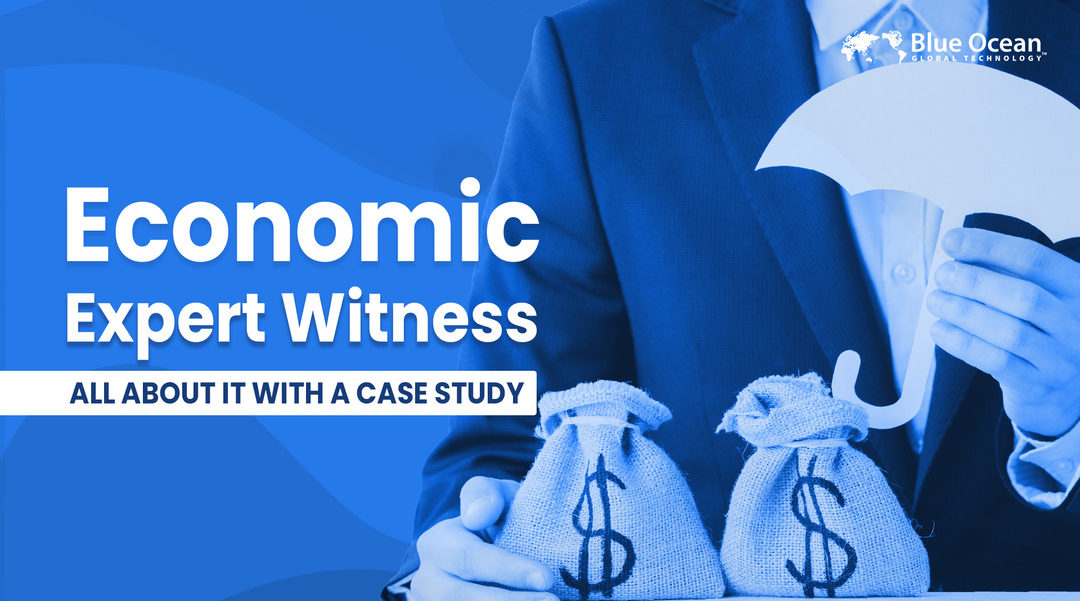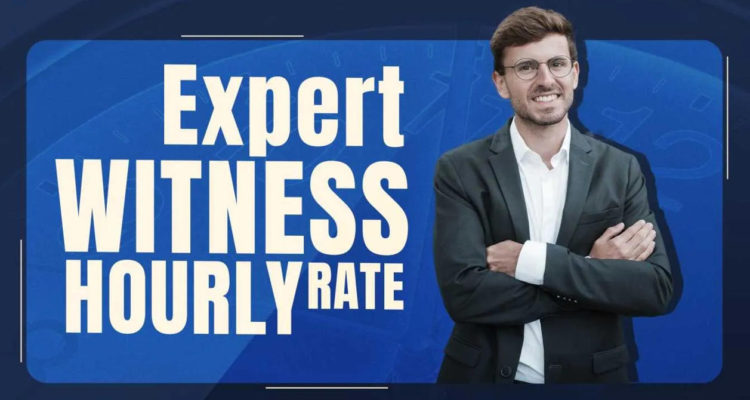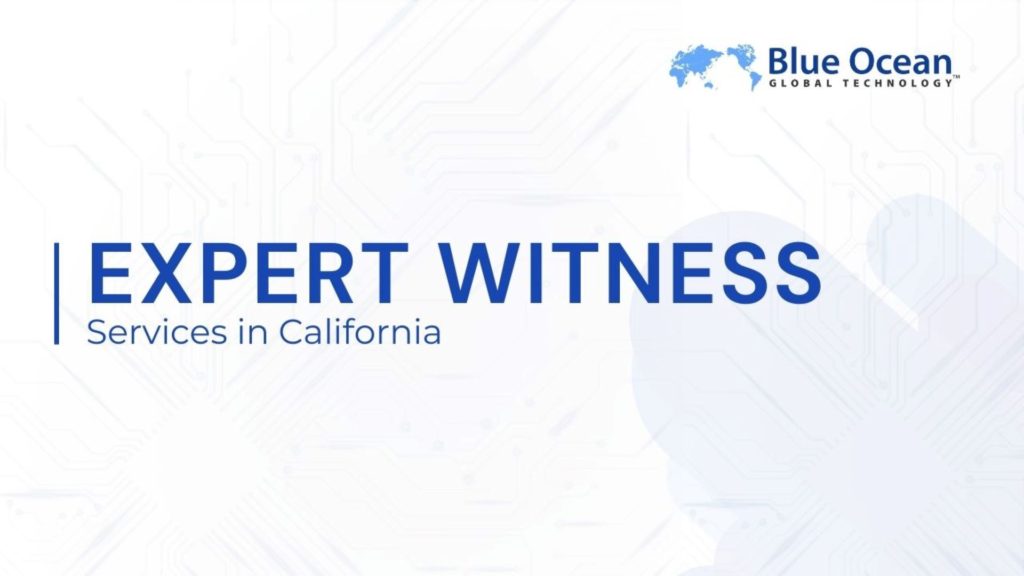An economic expert witness provides testimony on economic theories, trends, and related matters. They assist legal cases by assessing and quantifying losses. These experts hold advanced degrees in economics, have experience in economic analysis, and have strong communication skills. They are commonly involved in tort cases, commercial litigation, forensic accounting, insurance claims, and class action lawsuits. Antitrust cases can no longer be imagined without the aid of economics experts. Economists were, however, initially employed as expert witnesses only in the seminal case of United States v. United States Steel, when two prominent economists, Francis Walker and Jeremiah Jenks, testified for the Department of Justice and United States Steel.
Blue Ocean Global Technology provides you with an experienced team of professional witnesses with the expertise to provide the optimal result to your case. Whether it is a personal injury case, insurance claim, or antitrust litigation, we can help you calculate losses and properly present them to the court.
What Is an Economic Expert Witness?
An economic expert witness is someone with expertise in assessing and quantifying losses. Their comprehension of economic theory and its practical application in legal contexts allows them to evaluate matters such as antitrust regulations and the impact of intellectual property infringement, and to quantify personal injury damages.
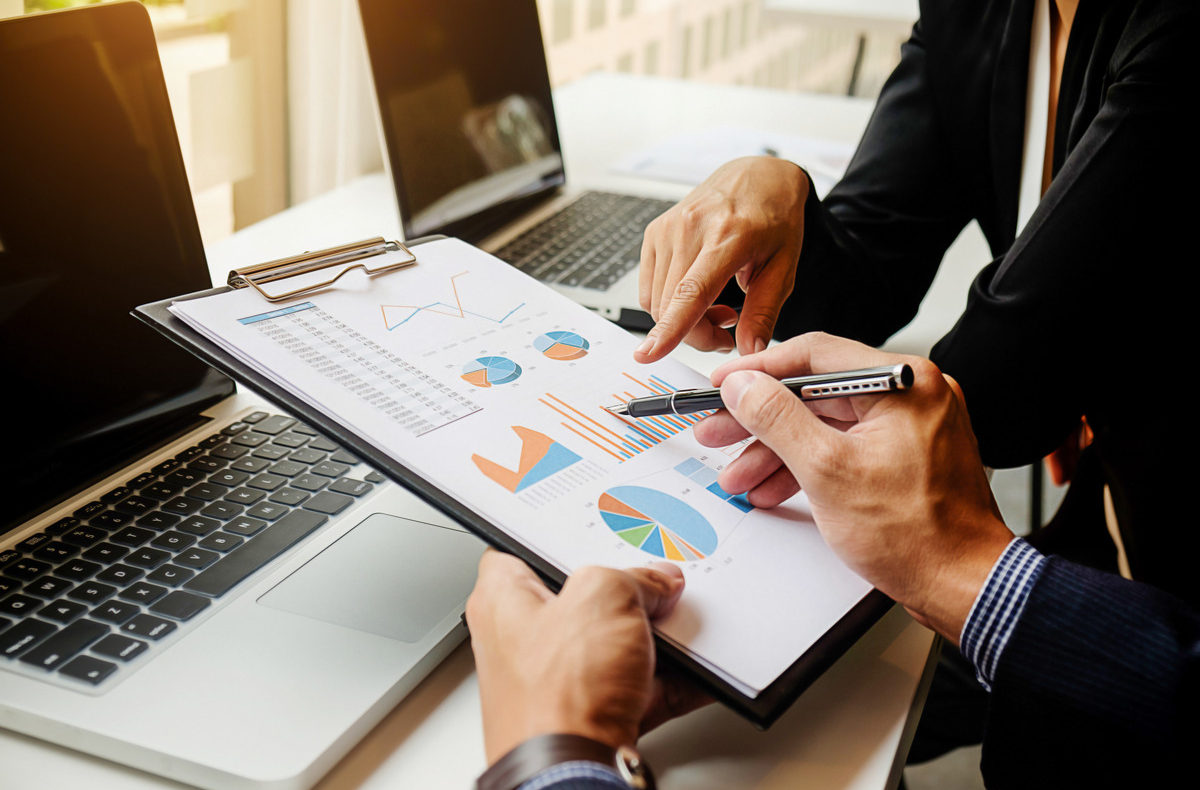
In litigation, these experts support legal strategy by providing objective analysis and testimony of the case. It will help courts and everyone involved to better understand economic concepts and the truthful impact of the events. By doing so, they are indispensable in economic litigation to assist the courts in deciding the cases fairly and impartially.
Testimony by expert witnesses is ruled by Federal Rules of Evidence 702. Expert testimony is admitted if the expert’s knowledge helps to understand the evidence or to determine a fact. The rule establishes that testimony must be based on sufficient facts, and is the product of reliable principles and methods. The opinion should reflect a reliable application of the principles and methods to the facts of the case.
What Qualifies Someone as an Economic Expert Witness?
An economic expert witness must have certain qualifications to testify and indeed assist in a legal case. Their qualifications typically include:
Strong Academic Background in Economics
These experts usually hold a Ph.D. or a Master’s in Economics. This training enhances their credibility to testify in legal cases and ensures their testimony accurately provides insights to assist the case.
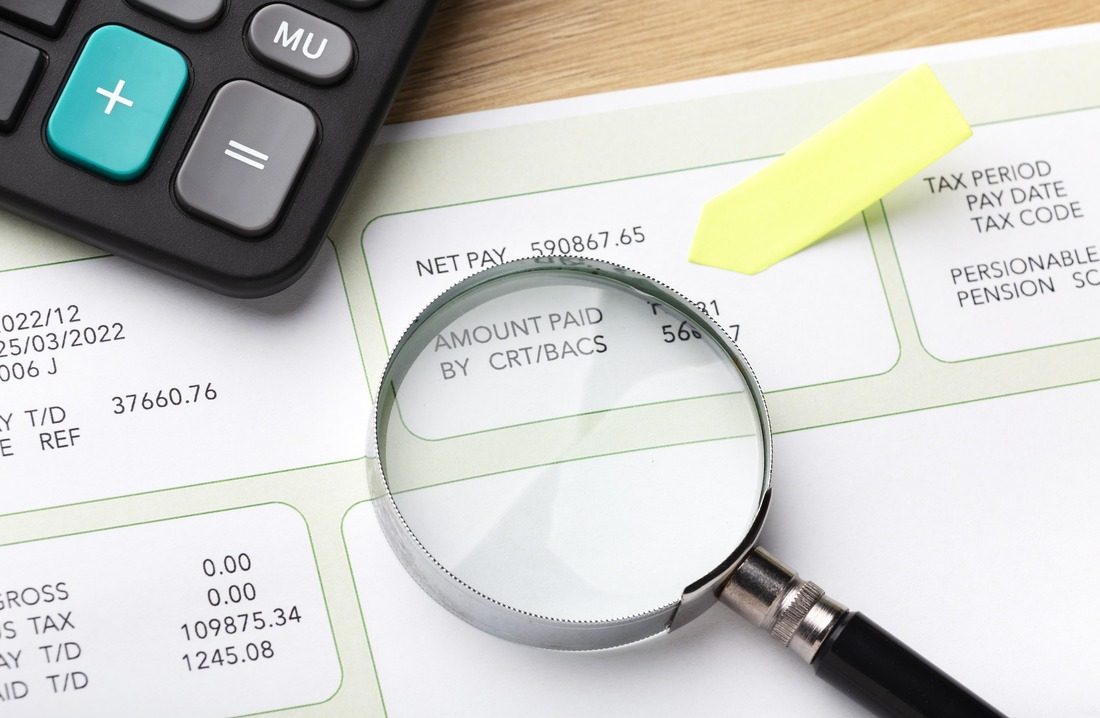
Experience in Economic Analysis
Experience in the field is truly valued. It demonstrates the expert has a deep understanding of economic principles and how they are applied in the real world.
Communication Skills
Good communication is key to the success of an expert in a case. They need to explain financial concepts in a clear and understandable to everyone in court. One of the most vital roles played by the expert is to make the information understandable. For this purpose, the expert should be extremely knowledgeable about the subject, yet should be able to communicate it so that the opinion is expressed in clear and persuasive terms.
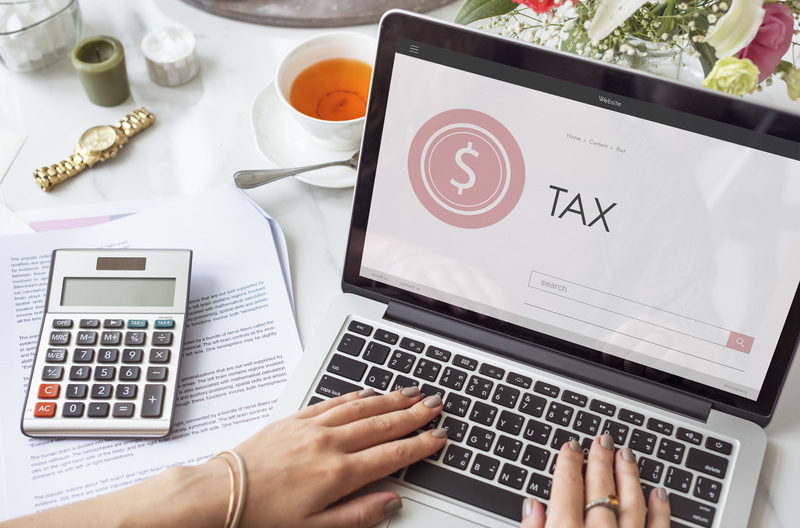
Certifications
They can also carry the Certified Public Accountant designation, Certified Valuation Analyst credential, or Chartered Financial Analyst designation.
When Are Economic Expert Witnesses Required?
There exist numerous money damage cases or money disputes with intricate natures in which the economic expert witnesses have an active role. Some cases include:
Tort Cases
They provide economic analysis for tort cases, by assessing damages, taking into account settlement offers, and determining fair compensations.
Commercial Litigation
This refers to breach of contract, intellectual property disputes, antitrust disputes, and business interruption cases. Experts are required to evaluate and quantify damages, assess business efficiency, forecast economic trends, and analyze compliance costs.
Forensic Accounting
They identify and analyze financial discrepancies, quantify financial losses, and evaluate economic models and projections. By doing so, experts can uncover fraudulent activities, and assess damages in embezzlement cases.
Insurance Claims
In these cases, they evaluate insurance policies, assess causation, and quantify economic losses.
Class Action Lawsuits
They assess the impact and analyze economic harm suffered by a group of individuals in cases related to product defects, unfair business practices, and environmental damages.
Find Qualified Economic Expert Witnesses for Your Case
Contact us today to find the expert you need for your case!
Areas Where Economic Expert Witnesses are Needed
An economic expert witness is needed to provide an opinion in a wide range of areas. Key areas include:
- Legal Economic Evaluations: They identify, value, and compare the costs and benefits to help decide between the most promising options.
- Valuation Methods: They can determine the value of the business, assets, and intellectual property impacted by the damages.
- Financial Modeling: They create a summary of a business’s expenses and earnings to calculate the impact of a future event.
- Statistical Analysis: They utilize statistical methods to analyze future damages and the probability of consequences.
- Economic Forecasting: They predict future economic conditions by using economic variables and indicators.
How to Choose an Economic Expert Witness?
When looking for an economic expert witness, there are some points to take into consideration. Here are key points to consider and choose the best expert for your case:
Reviewing Credentials and Qualifications
Look for experts with advanced academic qualifications in economics. Their credentials also show their area of expertise and that the expert is always looking to be updated. Finding an expert who is familiar with the particular area of your case is an advantage.
Evaluating Communication Skills
Evaluate the expert’s ability to explain complex economic concepts clearly and demonstrate it persuasively. Choosing an expert witness who uses comprehensive methodologies and clear communication will make it more likely for a court to rely on the report.
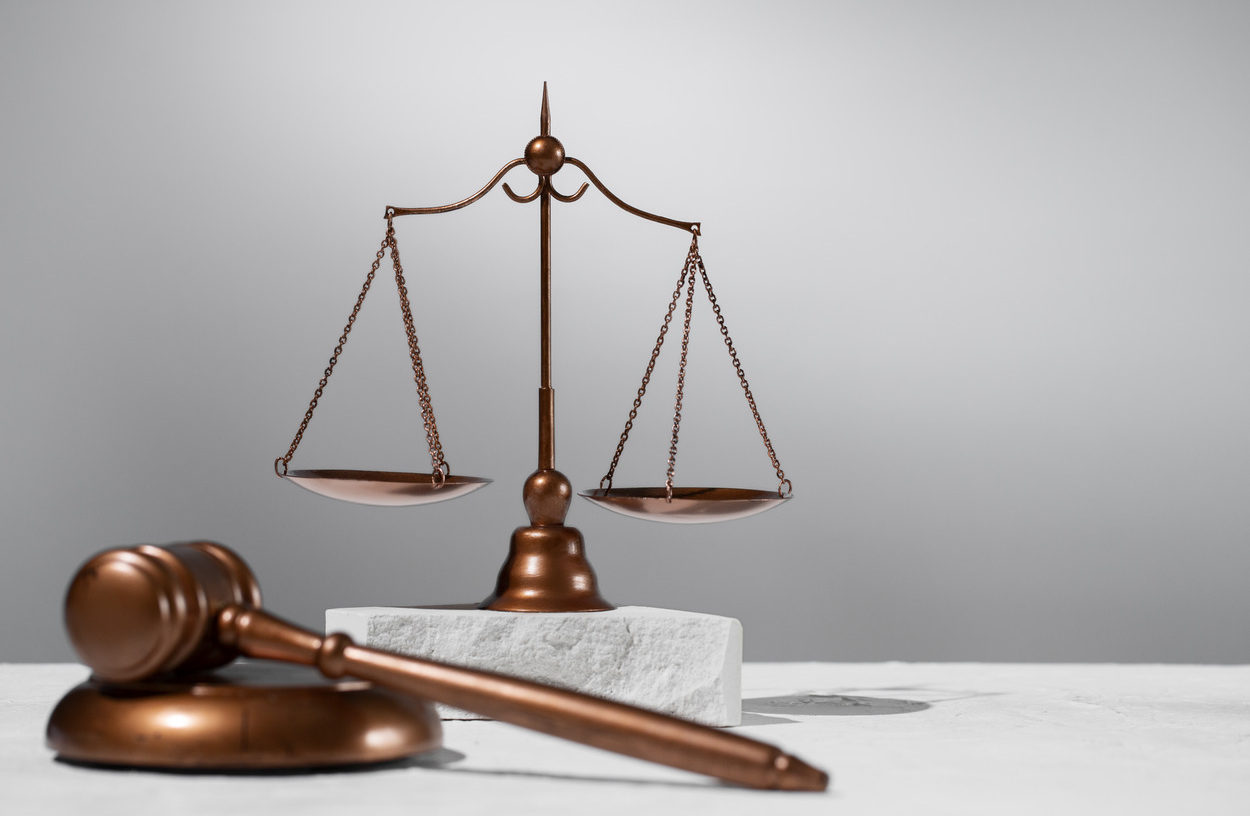
Reviewing Testimony History
Review the expert’s prior testimony in cases and evaluate depositions and performance in the court.
Considering Legal and Ethical Standards
Verify if the expert checks the legal rules to testify, such as following Federal Rules of Evidence 702 and the Daubert Standard. They should also follow ethical standards when giving their opinion, following human values and societal norms.
Evaluating Cost and Value
Identify how the expert’s service will impact your case. Determine the benefits of employing one and consider the costs associated with it.
Blue Ocean Global Technology understands the value of a qualified expert witness for the success of your case. Our experienced professionals have provided services that have helped many customers and ensured that their cases were adequately understood in court.
What Hourly Fees Does an Economic Expert Witness Charge?
Hourly rates for an economics expert witness will be determined by the level of experience, the case’s complexity, and whether testifying is needed. Hourly rates for such witnesses typically range from 250$ to 1,500$ + per hour, with added fees for retainers, depositions, or fixed fees, as indicated below:
- Hourly Rate:
- Range: 250$ – 1,000$ + per hour.
- Factors: advanced certifications, specialized expertise, case complexity, and expert’s reputation.
- Retainer Fee:
- Range: 2,000$ – 10,000$ + (paid upfront).
- It is a fee to secure the expert’s availability and covers initial case assessment and preparation.
- Deposition/Testimony Fees:
- Range: 500$ – 1,500$ + per hour.
- Factor: Preparation and time required for court appearances.
- Flat Fees:
- Range: 5,000$ – 20,000$
- Some professionals provide fixed prices for specific services like report preparation or calculation of damage.
At Blue Ocean Global Technology, we embrace an individualized approach, offering testifying and non-testifying expert witness services. We use the latest tools and techniques to aid in your case, advising you on the most suitable services to choose and explaining to you the fees that will be charged.
Economic Expert Witness Case Study
Economics expert witnesses determined the overall scale of the damages when the Deepwater Horizon spill in the Gulf of Mexico occurred in 2010. People, the economy, and businesses were affected by the accident. Economic professionals were able to paint the right picture regarding the economic impact and ensure that the people affected were given fair compensation.
What are the Key Differences Between an Economic Expert Witness and a Financial Expert Witness?
They differ in terms of education, expertise, and type of cases worked on. Economic witnesses deal with cases like the cases in tort cases, commercial disputes, and insurance claims, while the work of financial witnesses involves fraud investigation and business valuation.
Both expert witnesses need to be in line with the Federal Rule of Evidence 702 so that the evidence they provide can be admissible in court.
Financial and Economic Expert Witness Collaboration
Although economic and financial experts don’t have the same scope of work, they can still collaborate in legal cases. Financial expert witnesses can be required in cases to analyze economic damages and lost profits. These experts can collaborate and bring together their expertise to calculate losses in breach of contract, personal injury, or wrongful termination cases. To accurately project economic losses and quantify damages, experts can use economic and financial models.
Disgorgement and Economic Expert Witness Collaboration
Disgorgement expert witnesses can be beneficial in cases that involve giving up profits obtained through unlawful or unethical activities. Having a background in economics is critical for these experts. As a result, disgorgement and economist expert witnesses can collaborate to analyze records and provide testimony on the correct amount to be disgorged.
Conclusion
The role of an economic expert witness is indispensable when discussing legal matters that involve economics. Supported by appropriate credentials such as in-depth knowledge of economic theory and trends and business experience, the professionals provide valuable services to legal professionals and the courts. They appear in cases ranging from business disputes to personal injury and class actions, where specialized knowledge makes the difference in the calculation of fair compensation. When looking for an expert to assist your legal case, ensure to thoroughly consider key points, such as past testimony records and expert reputation.
Frequently Asked Questions
What is an economics expert witness?
This expert assesses, quantifies losses, and provides opinions in legal cases related to economic matters.
In which cases are economics expert witnesses commonly involved?
They are commonly involved in cases related to personal injury, commercial litigation, forensic accounting, insurance claims, and class action lawsuits.
How to choose the right economics expert witness for your case?
Review the qualifications and credentials. Engage the services of professionals who have experience in the matter of your case and who have courtroom experience. Effective communication skills are another aspect to be kept in mind when choosing an expert.
Strengthen Your Argument with Our Expert Witness Services
Get in touch with us for a free consultation today!

